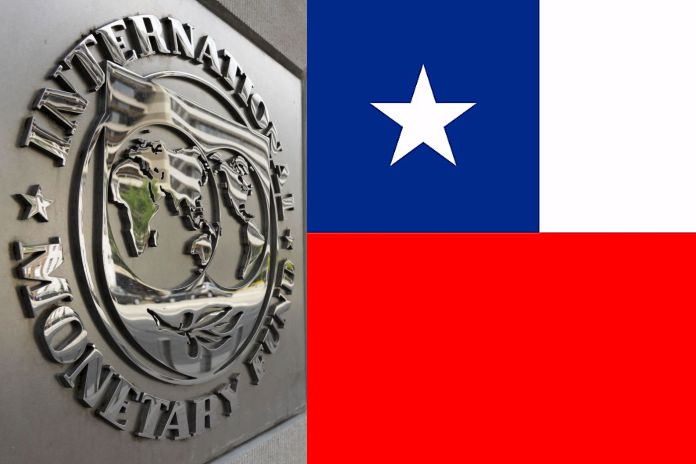WASHINGTON, USA – On April 19, 2021, the executive board of the International Monetary Fund (IMF) concluded the Article IV consultation with Chile.
The pandemic hit Chile as it was recovering from the economic consequences of the social unrest in October 2019. Economic activity is projected to have declined by 5.8 percent in 2020, about 7 percentage points below staff’s pre-pandemic projection. Inflation has hovered around the central bank’s target of 3 percent and inflation expectations remain well-anchored. Although employment has recovered from a contraction of 20.6 percent in mid-2020, it remains below its pre-pandemic level. At end-March 2021, due to rapidly increasing COVID‑19 cases, the government tightened mobility restrictions but expanded existing fiscal measures to mitigate their impact, while the vaccination process is proceeding expeditiously (in this respect Chile is not only the regional leader but also among the top performers globally).
The government adopted a wide-ranging and well-planned set of fiscal, monetary, and financial policy actions to ease the effects of the pandemic. The government is implementing a multi-year fiscal package, amounting to about 13 percent of GDP, focused on safeguarding health, protecting incomes and jobs, and facilitating credit, refinancing, and repayments. The Central Bank introduced a broad range of unconventional measures to support liquidity, including through funding-for-lending facilities, asset purchase programs, and an expanded collateral framework. Financial sector policies have been introduced, aimed at facilitating the flow of credit, especially to households and SMEs, including by relaxing liquidity requirements, and facilitating the issuance and placement of securities. The IMF’s Flexible Credit Line has contributed to the ability to withstand external stress, while the exchange rate has been allowed to freely float and act as a shock absorber.
Economic activity is expected to grow at 6.5 percent in 2021, as the fallout from the pandemic gradually recedes and mobility restrictions are relaxed, while the economy continues to get support from accommodative policies and the strong vaccination process. Over the medium term, growth is projected to converge to its potential of 2.5 percent. The current account balance is expected to remain close to zero in 2021, owing to strong terms of trade and despite the surge in imports associated with the recovery, before gradually moving over the medium term towards a small deficit.
Risks remain amid high uncertainty, but the country exhibits strong resilience, thanks to its large policy response, the remaining fiscal space, and the very strong institutional policy framework. External risks are largely related to the dynamics of the pandemic, though the fast pace of the vaccination program is expected to contain such risks. Movements in the price of copper would significantly affect exports, fiscal revenues, and prospects for investment and growth. Domestic risks stem primarily from a series of elections and the outcome of a New Constitution process—scheduled to finish in mid-2022—which are expected to shape the public discourse and influence the policy agenda.
Executive board assessment
Executive directors recognized that Chile’s strong policies enabled the authorities to respond swiftly to the health and economic impact of the COVID-19 pandemic, including the rapid rollout of vaccines. Directors noted that although the economy is beginning to recover, uncertainties remain. They emphasized that continued strong policies and advancing structural reforms will be key to mitigating the impact of the pandemic and supporting inclusive growth.
Directors commended the authorities’ fiscal efforts in response to the crisis, while maintaining a very strong fiscal position. They emphasized that, as the recovery strengthens, medium-term revenue and targeted spending measures will be needed to address social needs, protect the vulnerable, and rebuild buffers, while preserving debt sustainability. Directors encouraged steps to strengthen the fiscal rule and revisit exemptions, deductions, and special regimes, increase direct taxation, and raising green taxes towards international standards.
Directors highlighted that further pension withdrawals should be avoided, as they have weakened the pension system. They recommended that if additional support is needed, it should be delivered via targeted fiscal measures which are more effective in reaching those in need.
Directors welcomed the Central Bank’s broad range of conventional and unconventional measures to support liquidity and facilitate the flow of credit, especially to households and SMEs. They also highlighted that financial sector vulnerabilities should continue to be closely monitored and that financial sector reforms would need to resume their pace as the recovery advances.
Directors highlighted the urgency of reaching broad agreements to unlock structural and social reforms which would invigorate confidence, support the recovery and growth, and promote social cohesion. In particular, they stressed the need for comprehensive pension and health reforms. Directors noted that improving education quality and financial integration, reducing labor market inefficiencies and informality, promoting trade integration, and responding to climate change will also be crucial to foster productivity and inclusiveness.





